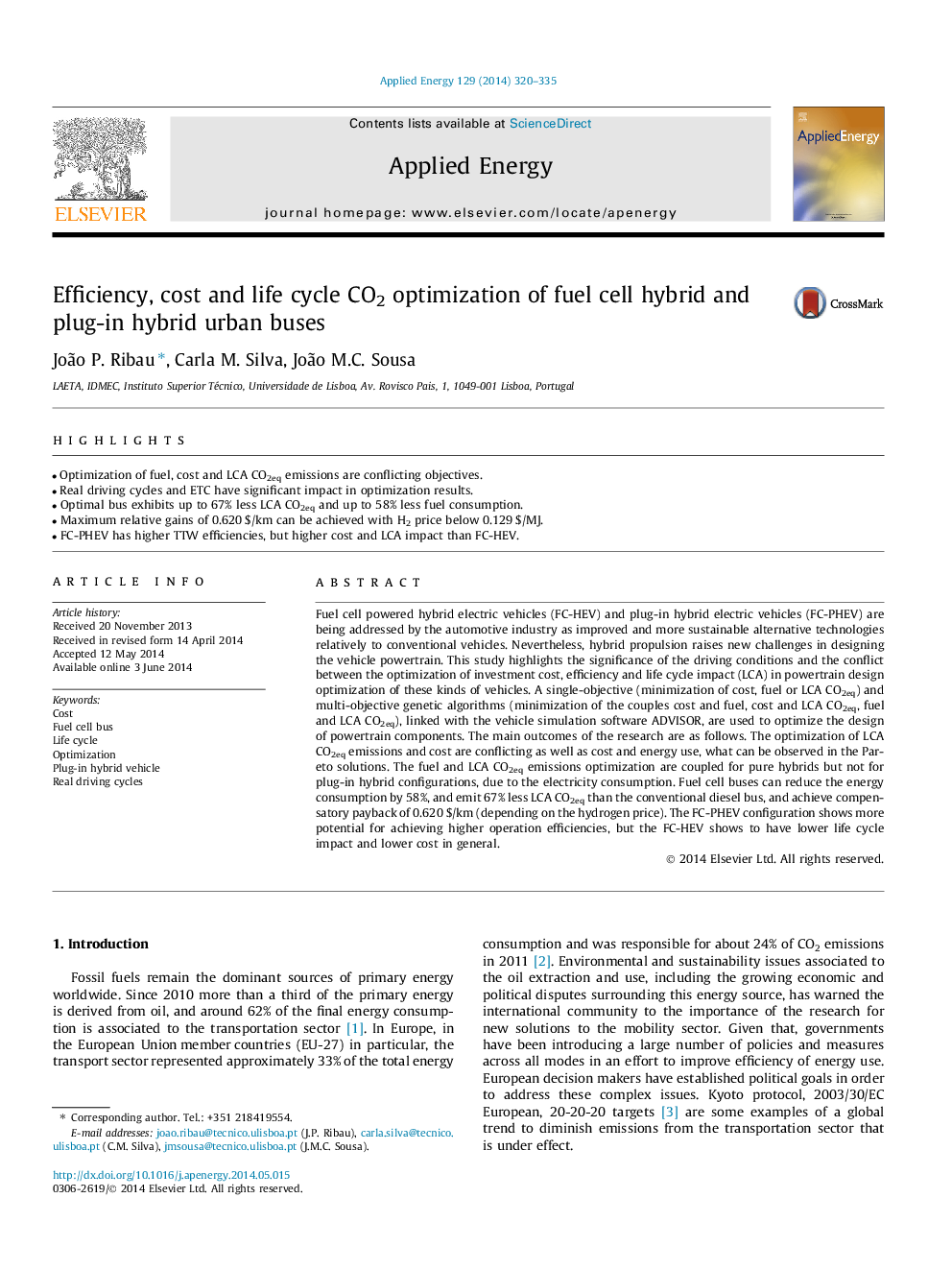| کد مقاله | کد نشریه | سال انتشار | مقاله انگلیسی | نسخه تمام متن |
|---|---|---|---|---|
| 242724 | 501897 | 2014 | 16 صفحه PDF | دانلود رایگان |

• Optimization of fuel, cost and LCA CO2eq emissions are conflicting objectives.
• Real driving cycles and ETC have significant impact in optimization results.
• Optimal bus exhibits up to 67% less LCA CO2eq and up to 58% less fuel consumption.
• Maximum relative gains of 0.620 $/km can be achieved with H2 price below 0.129 $/MJ.
• FC-PHEV has higher TTW efficiencies, but higher cost and LCA impact than FC-HEV.
Fuel cell powered hybrid electric vehicles (FC-HEV) and plug-in hybrid electric vehicles (FC-PHEV) are being addressed by the automotive industry as improved and more sustainable alternative technologies relatively to conventional vehicles. Nevertheless, hybrid propulsion raises new challenges in designing the vehicle powertrain. This study highlights the significance of the driving conditions and the conflict between the optimization of investment cost, efficiency and life cycle impact (LCA) in powertrain design optimization of these kinds of vehicles. A single-objective (minimization of cost, fuel or LCA CO2eq) and multi-objective genetic algorithms (minimization of the couples cost and fuel, cost and LCA CO2eq, fuel and LCA CO2eq), linked with the vehicle simulation software ADVISOR, are used to optimize the design of powertrain components. The main outcomes of the research are as follows. The optimization of LCA CO2eq emissions and cost are conflicting as well as cost and energy use, what can be observed in the Pareto solutions. The fuel and LCA CO2eq emissions optimization are coupled for pure hybrids but not for plug-in hybrid configurations, due to the electricity consumption. Fuel cell buses can reduce the energy consumption by 58%, and emit 67% less LCA CO2eq than the conventional diesel bus, and achieve compensatory payback of 0.620 $/km (depending on the hydrogen price). The FC-PHEV configuration shows more potential for achieving higher operation efficiencies, but the FC-HEV shows to have lower life cycle impact and lower cost in general.
Journal: Applied Energy - Volume 129, 15 September 2014, Pages 320–335